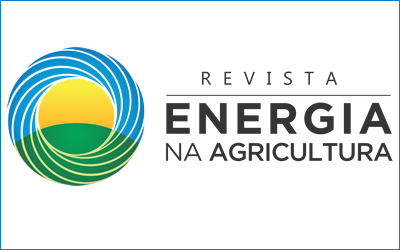ANÁLISE ECONÔMICA DA PRODUÇÃO DE LODO DE ESGOTO COMPOSTADO PARA FINS AGRÍCOLAS NA ESTAÇÃO DE TRATAMENTO DE ESGOTO DE BOTUCATU-SP.
DOI:
https://doi.org/10.17224/EnergAgric.2021v36n2p218-229Abstract
This study aimed to evaluate economically the nutrients present in the compost resulting from the composting process of sewage sludge with and without the addition of structuring material (ME) at the “Lageado” Sewage Treatment Station (ETE), by Sabesp de Botucatu, for purposes of agricultural use. Sewage sludge is a waste that is difficult to dispose of for several reasons, such as high transportation and disposal costs. The studies were based on the production of 16 tons of sludge per day, which generates an annual cost of approximately R $ 1,466,438.40 in transportation and disposal. The annual cost of production of the sewage sludge composted with ME was estimated, based on the production process of a batch of an experimental character. For the final product that did not use ME, the estimate was prepared based on the current process of drying and revolving fresh sludge. Analyzes of samples of the final products were carried out to estimate the economic value contained in the present nutrients and both presented satisfactory amount of nutrients, in addition to meeting the parameters of CONAMA Resolution 375/06 and requirements of the Ministry of Agriculture (MAPA). Considering that the Company can currently sell these products as fertilizers, the value of the final product was estimated based on the average values paid by agriculture, the compound with ME would generate an annual revenue of R $ 349,653.9 and the product without ME of R $ 51,269.9. The results show that the economic result is positive, that is, the cost of composting, less the value of nutrients is less than the cost of disposal in landfills.
Published
How to Cite
Issue
Section
License
Copyright (c) 2022 ENERGY IN AGRICULTURE

This work is licensed under a Creative Commons Attribution-NonCommercial-NoDerivatives 4.0 International License.
Esta revista proporciona acesso publico a todo seu conteúdo, seguindo o princípio que tornar gratuito o acesso a pesquisas gera um maior intercâmbio global de conhecimento. Tal acesso está associado a um crescimento da leitura e citação do trabalho de um autor. Para maiores informações sobre esta abordagem, visite Public Knowledge Project, projeto que desenvolveu este sistema para melhorar a qualidade acadêmica e pública da pesquisa, distribuindo o OJS assim como outros software de apoio ao sistema de publicação de acesso público a fontes acadêmicas.





